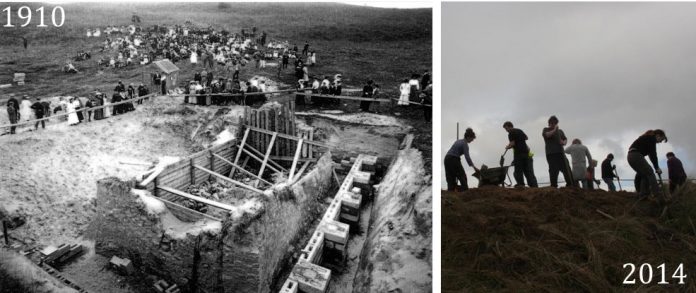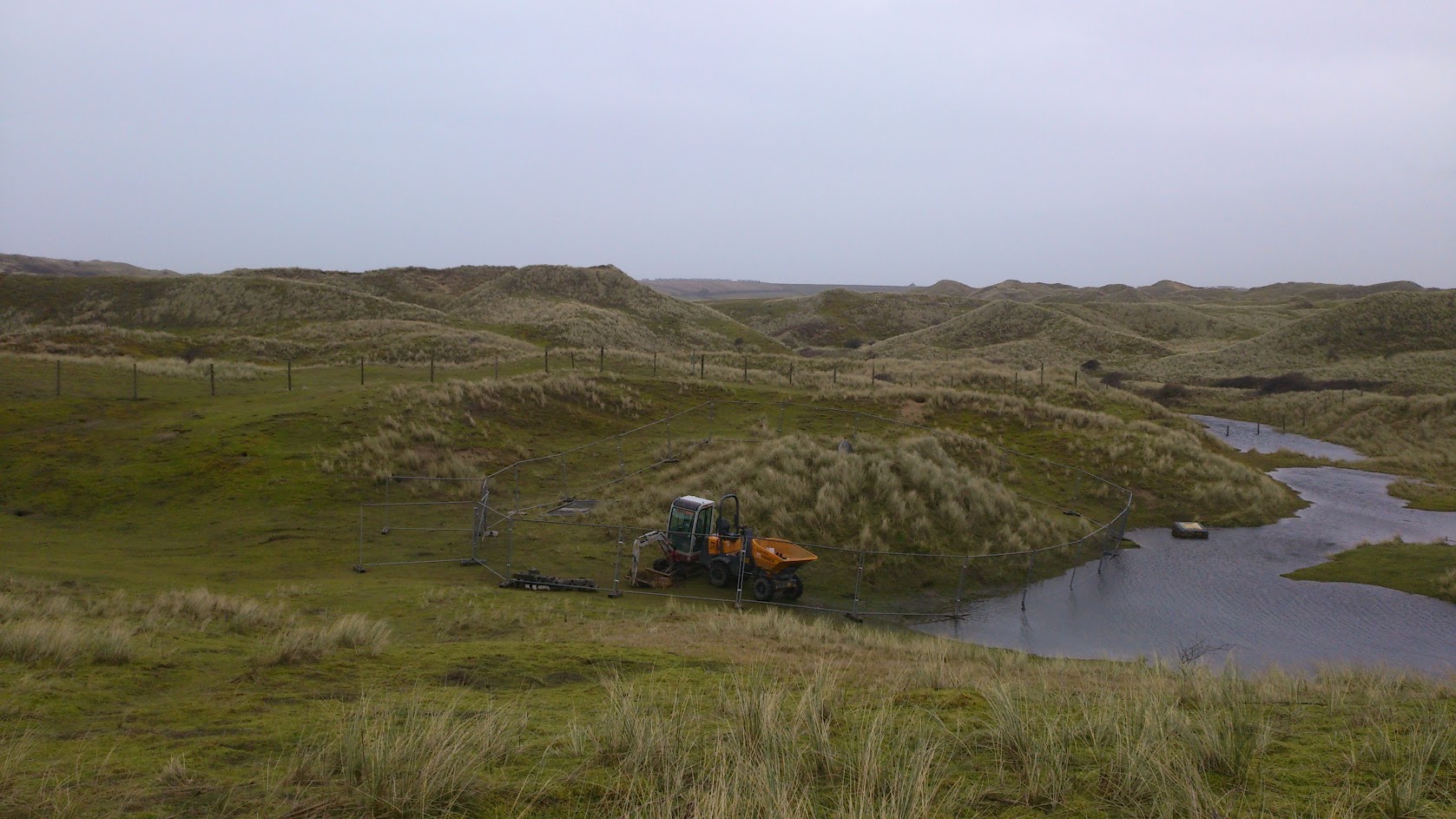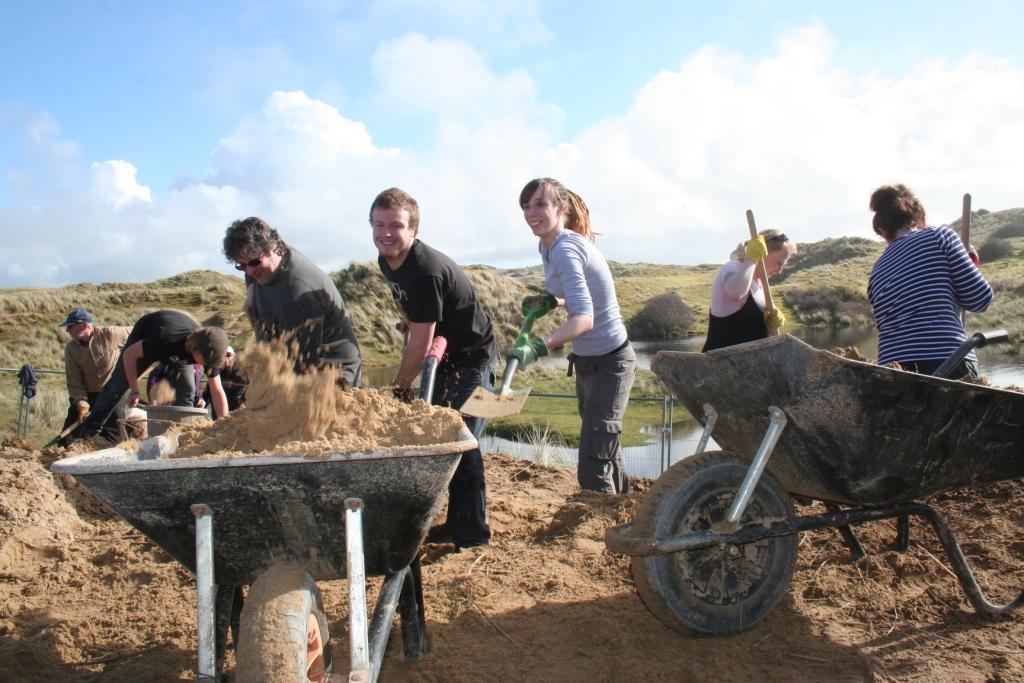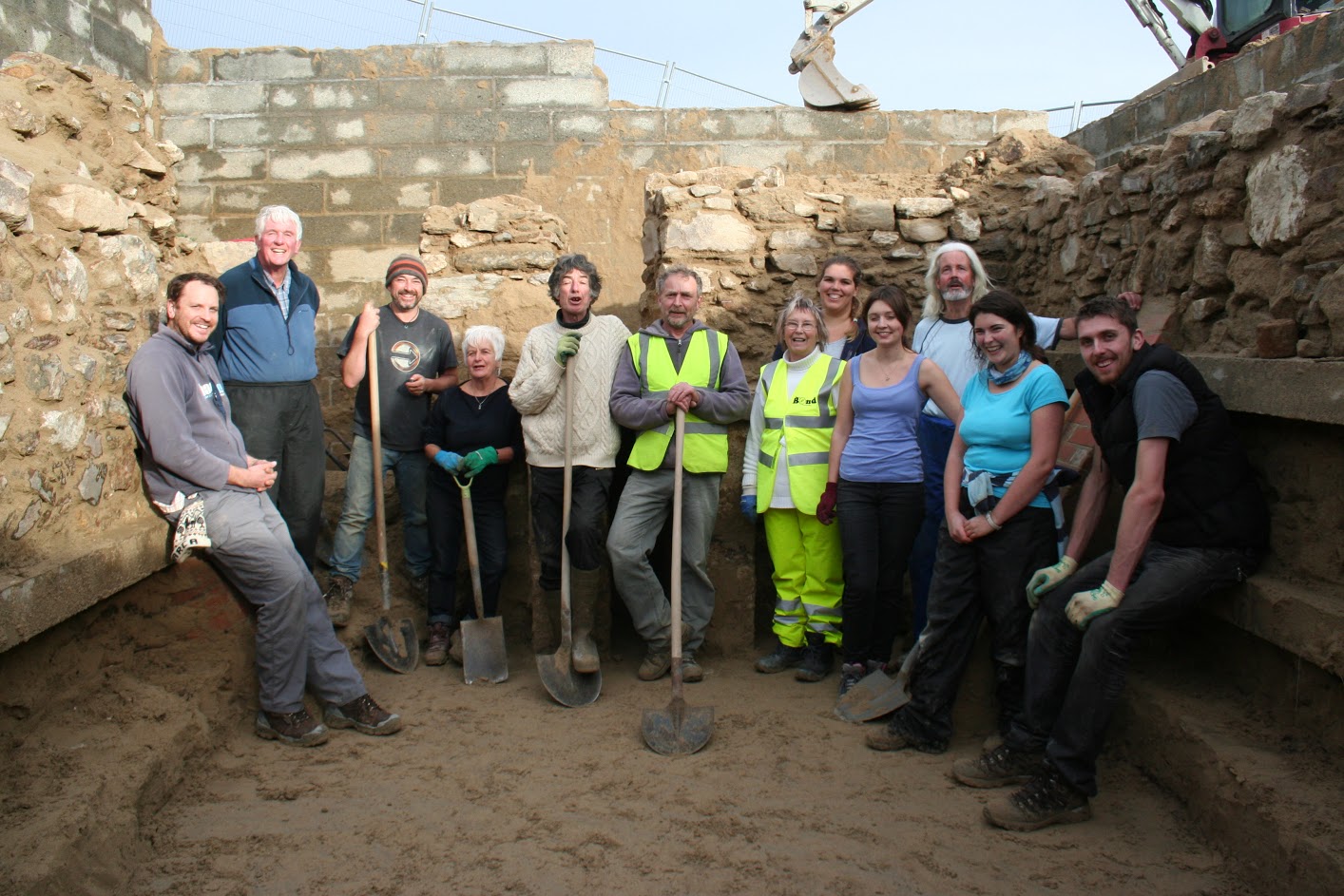by James Gossip
Cornwall Archaeological Unit
The building is a medieval Christian chapel with associated cemetery which acquired fame in the 19th century when shifting sands revealed ruinous walls and subsequent excavations (1835 and 1843) completed the discovery of what was claimed at the time to be the oldest Christian building on the British mainland.
Owing to repeated problems with vandalism and flooding, the Oratory was reburied in 1980, but since this time its iconic status has increased, largely because of its association with St Piran, generally regarded as the national saint of Cornwall and patron saint of tin miners. The Oratory is protected as a Scheduled Monument (Cornwall no 29670).
The monument known as St Piran’s Oratory is an early Christian chapel comprising a small stone-built nave and chancel located on the wind-blown Gear Sands 1.5km from the coast line at Perran Bay. Burials, some in stone and slate cists lie within an associated graveyard which surrounds the chapel. The oratory, a Grade II Listed Building, has been deliberately buried in sand for its own protection. The oratory chapel is thought to have been erected probably in the seventh century AD and remained in use perhaps until the 11th or 12th centuries.
After halting work in March due to the high water table, excavation work began again in earnest in early November with scores of volunteers shifting tons of sand to reveal the Oratory for the first time since 1980. This has enabled the first ever detailed archaeological record to be made of the structure, making it possible to carry out analysis and interpretation on this little-understood structure. Although much disturbance had been caused by construction of a protective concrete ‘shell’ in 1910, a group of undisturbed burials was revealed to the north-west of the building.
Those burials in danger of disturbance from building work have been recorded and lifted for further analysis and it is expected that radiocarbon dates will show that they represent the final use of the area around the Oratory as a cemetery. The excavation has now been completed and conservation building work is planned for spring 2015 after which it is hoped that the Oratory will remain open and accessible to all. It is hoped that a Stage 3 project will be developed in order to investigate the surrounding landscape of the Oratory in more detail, helping us understand site chronology and the changing environment over time.
The work was undertaken by a large team of volunteers comprising St Piran Trust, Cornwall Archaeological Society members and archaeology students directed by James Gossip, Cornwall Archaeological Unit.
An open weekend was attended by hundreds of people from all over Cornwall and beyond, many of whom remembered seeing the concrete-encased chapel when they were young, whilst some were seeing it for the first time. On Sunday crowds gathered to take part in the first service to have taken place for many decades.
The project was funded by grants from Heritage Lottery Fund, SITA, CORY, Cornwall Heritage Trust, English Heritage and St Piran Trust.




